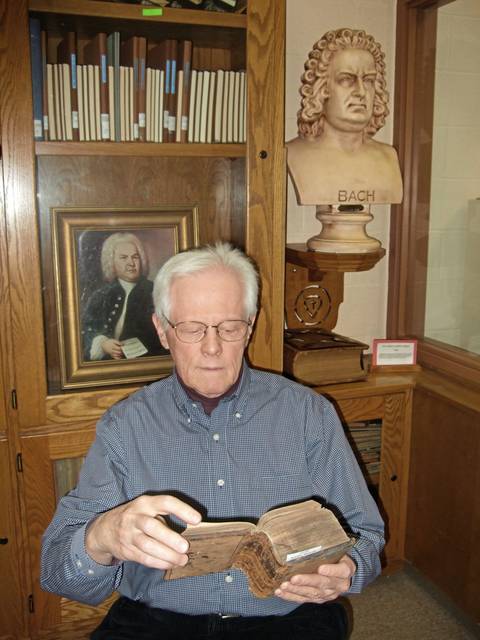https://staging.triblive.com/aande/music/chatham-baroque-celebrates-bachs-334th-birthday/
Chatham Baroque celebrates Bach’s 334th birthday

Every short list of the greatest composers in history will include Johann Sebastian Bach. The music of this German baroque composer can be a companion for life. The legendary cellist Pablo Casals liked to start his day with a half hour of Bach because it attuned his soul for the rest of the day.
Chatham Baroque and guests will celebrate the 334th birthday of Johann Sebastian Bach with a free concert on March 24 at Church of the Redeemer in Squirrel Hill, Pittsburgh.
The program features internationally prominent Bach scholar and conductor Don Franklin leading performances of the Concerto for Violin and Oboe, Cantata No. 115, “Mache dich, mein Geist, bereit” (Make yourself ready, my spirit), and movements from the Lutheran Mass in G major. In addition, flutist Michael Lynn will play movements from Bach’s Partita for solo flute and Ann Labounsky will play an organ chorale.
Bach scholar
Franklin was twice chair of the department of music at the University of Pittsburgh, where he is professor emeritus. He was recently named honorary member of the American Bach Society, of which he is a past chairman.
He began conducting Bach as a graduate student at Stanford University in California and found it “beautiful and engaging.”
After finishing his dissertation, he received a fellowship to study in East Germany. Bach’s longest job was at St. Thomas Church in Leipzig and Franklin was able to study Bach’s manuscripts and the work of his copyists. Franklin’s writings are published in Europe and the U.S.
In Pittsburgh, Franklin was a founder of the Bach and Baroque concert series at which he enriched local music life with performances of Bach’s cantatas and the longer choral works – the Mass in B minor, the passions and the Christmas Oratorio. He also led the U.S. premiere in Pittsburgh of the rarely heard second version of the St. John Passion.
‘Magnificent’
After many decades living with and exploring Bach’s music, Franklin points to the interaction of three elements that make it so magnificent.
“The music is a balance between the contrapuntal and the harmonic. His use of instruments is wonderful. He was a fantastic orchestrator,” he says. “Theologically, the way he conveys the meaning of the text is not in depicting it, word painting, but in capturing the ‘ethos’ (character or spirit) of the particular text he’s setting. In some ways, he’s quite classical, not ‘Come to Jesus’ at all.”
Franklin says the Concerto for Violin and Oboe is “very popular. It has very little counterpoint and a very beautiful aria in the second movement.” Bach rewrote the concerto for two solo harpsichords for performance by his sons at a concert series at Zimmermann’s Coffee Shop in Leipzig.
Bach composed more than 200 cantatas, vocal works for a single voice up to multiple soloists plus choir, which were either sacred or secular in orientation. For several years he wrote a new cantata every week for performance at church on Sunday. Cantata No. 115 was written during the year he based every cantata on a chorale melody.
“It is simply beautiful,” Franklin says. “It has a lovely solo for soprano and viola d’amore which is very joyful and rhythmic. Some of the sounds in there are going to be extraordinary.”
Copyright ©2026— Trib Total Media, LLC (TribLIVE.com)
